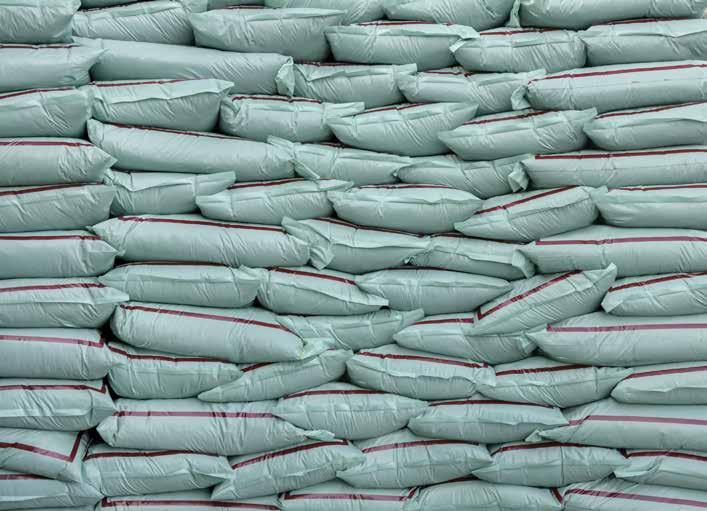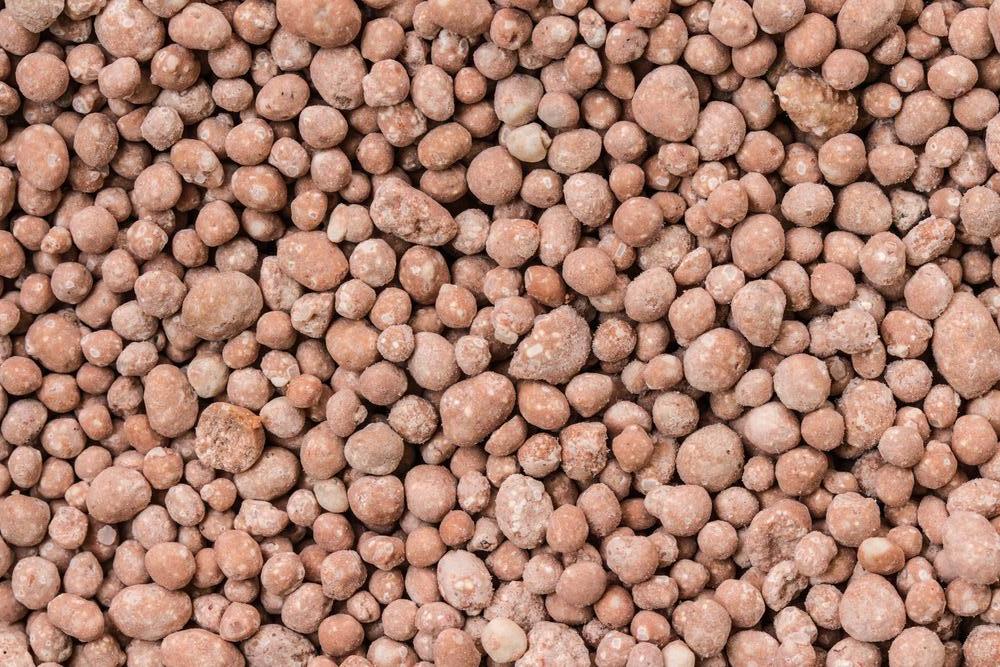
9 minute read
Siman
A further sign of resilience as agriculture posts a strong GDP rebound in 2Q2021
Comment by Paul Makube, Senior Agricultural Economist at FNB Agri-Business
Advertisement
Statistics SA’s latest economic growth numbers came out stronger than expected in the 2nd quarter of 2021 underpinned by robust gains in the transport sector, personal services, as well as agriculture with quarterly increases of 6.9%, 2.5%, and 6.2% respectively.
Overall growth came in 1.2% higher q/q from 1% q/q in the 1st quarter 2021. Resilience in the agriculture sector continued as expected despite the ongoing Covid-19 related challenges with all sectors, field crops, horticulture crops, and animal products making immense contribution.
Leading signs of yet another impressive rebound, ahead of the release of 2Q2021 GDP numbers included the robust harvest of summer grain and oilseed crops, good commodity prices, the record high agribusiness confidence, as well as strong exports. underpinned by strong export demand despite the 2Q2021 Rand exchange rate appreciation of 6% quarter-on-quarter and 21% relative to 2Q2020 at R14.09/ US$. Further, the Agbiz/IDC Agriculture Business Confidence for 2Q2021 reached a 10year high of 75 points in the earlier update.
South Africa recorded an agriculture trade surplus of US$1.5 million which is 40% ahead of the same period in 2020. This follows a 36% y/y spike in total agriculture exports in quarter two of 2021 at US$3.2 billion, bringing the total 1H2021 export value to US$6.1 billion which is 30% higher y/y. The overall good export revenue was Looking ahead, another great agriculture year is in the offing if the recent weather forecasts of another La Nina year (normal to above normal rainfall) materialise for the 2021/21 summer crop season. This combined with relatively strong commodity prices despite input cost pressures, should deliver another year good agriculture year ahead and positive news on the inflation front with the food category likely to be tamed.




Global Witness Reports 227 land and environmental activists murdered in a single year
AGlobal Witness report released reveals that 227 land and environmental activists were murdered in 2020 for defending their land and the planet. That constitutes the highest number ever recorded for a second consecutive year. As the climate crisis deepens, forest fires rampage across swathes of the planet, drought destroys farmland, and floods leave thousands dead, the situation for frontline communities and defenders of the earth is getting worse.
On average, our data shows that four defenders have been killed every week since the signing of the Paris Climate agreement – but this shocking figure is almost certainly an underestimate, with growing restrictions on journalism and other civic freedoms meaning cases are likely being unreported.
The figures show the human cost of the destruction wrought by exploitative industries and corporations. At least 30% of recorded attacks were reportedly linked to resource exploitation – across logging, hydroelectric dams and other infrastructure, mining, and large-scale agribusiness. Logging was the industry linked to the most murders with 23 cases – with attacks in Brazil, Nicaragua, Peru and the Philippines.
The killings include the murder of Óscar Eyraud Adams, Kumiai water defender murdered in Mexico after opposing the extractive industries contributing to water scarcity in Baja California. Óscar was one of many Indigenous people killed in 2020, asserting their right to self-determination and protecting ancestral lands from those looking to exploit their natural resources.
Chris Madden, senior campaigner with Global Witness said: “One day, we hope to report an end to the violence against those defending our planet and their land, but until governments get serious about protecting defenders, and companies start putting people and planet before profit, both climate breakdown and the killings will continue. This dataset is another stark reminder that fighting the climate crisis carries an unbearably heavy burden for some, who risk their lives to save the forests, rivers and biospheres that are essential to counteract unsustainable global warming. This must stop’’.
Activists still under threat include communities in Guapinol in Honduras, where dozens of land and water defenders have been arrested in recent years for peacefully protesting an iron oxide mining concession which was granted by the central government in a protected area. Many community members remain incarcerated.
Key findings: • Colombia was once again the country with the highest recorded attacks, with 65 defenders killed in 2020. A third of these attacks targeted indigenous and afrodescendant people, and almost half were against small-scale farmers. • In 2020 the disproportionate number of attacks against indigenous communities continued – with over a third of all fatal attacks targeting indigenous people. Attacks against indigenous defenders were reported in Mexico, Central and South America, the Philippines, Saudi Arabia and Indonesia. • Nicaragua saw 12 killings – rising from 5 in 2019, making it the most dangerous country per capita for land and environmental defenders in 2020. • Where reports indicate that defenders were attacked for protecting specific ecosystems, the majority – 70% - were working to defend the world’s forests from deforestation and industrial development, efforts vital to curbing the climate crisis. Others died for their work protecting rivers, coastal areas and the oceans. • Almost 3 in 4 of the attacks took place in the Americas – with 7 out of the 10 highest countries located in Latin America. In Brazil and Peru, nearly three quarters of recorded attacks took place in the Amazon region of each country. • Global Witness documented 18 killings across Africa in 2020, compared to 7 in 2019. Most of these took place in the Democratic Republic of Congo (DRC), with two in South Africa and one in Uganda. In the DRC, 12 park rangers and a driver were killed in an attack by militia groups in the Virunga National Park. Verifying cases from across the continent continues to be difficult and it is possible cases are widely unreported.
Report recommendations
The United Nations through its member states should: • Formally recognise the human right to a safe, healthy, and sustainable environment. • Ensure that commitments and actions made at COP26 to implement the Paris Agreement integrate human rights protections. Governments have the primary duty to guarantee that defenders’ human rights are protected and that they can carry out their activism safely, and should: • Ensure national policies protect land and environmental defenders – and scrap any legislation used to criminalise them • Require companies and financial institutions to carry out mandatory due diligence, that provides accountability for violence and other harm to land and environmental defenders throughout their global operations and supply chains. • Ensure access to justice by investigating and pursuing prosecutions of all relevant actors, including implicated corporate actors, for violence committed against land and environmental defenders.
The European Commission is currently preparing two important pieces of legislation: an initiative on Sustainable Corporate Governance, and a Regulation on forest-risk commodities. The EU must ensure that: • The Sustainable Corporate Governance initiative requires all companies doing business in the EU to undertake steps to prevent, identify, address and account for human rights and environmental harms along their value chains as part of their due diligence and includes a strong enforcement mechanism with robust liability regimes and penalties to hold companies accountable; • The proposed due diligence Regulation on Forest-risk Commodities explicitly requires companies and financiers doing business in the EU to only source from or finance operations that have obtained the Free, Prior and Informed Consent (FPIC) of Indigenous peoples and local communities.
Businesses need to do everything in their power to ensure that they are not causing, contributing to, or benefiting from these attacks, whatever the costs. In particular they must: • Publish and implement robust due diligence systems to identify, assess, prevent and mitigate human rights and environmental harms throughout their supply chains and operations. • Adopt and implement a zero-tolerance stance on reprisals and attacks on land and environmental defenders • Provide for and facilitate effective remedy processes when adverse human rights and environmental impacts occur.
EIMA 2021:
Official delegations from 70 countries
Thanks to close cooperation with the ICE Agency, the international agricultural machinery exhibition will be able to welcome business operators from all over the world, in compliance with the differentiated safety protocols established by the health authorities for groups of countries. Business-to-business meetings will be held in a new facility at the Volvo Congress Center adjacent to the exhibition centre and connected to Hall 19.

The 44th edition of EIMA, the exhibition of machinery, equipment and components for agriculture and landscaping held in Bologna from 19 to 23 October, confirms its international character. Business operators from all over the world will be attending the exhibition - the first of its kind to be held after the suspension of trade fair events due to the health emergency - to find out about the new product ranges and deal with the purchase of the technologies most in demand in the various agricultural and economic settings.
The aim of FederUnacoma - the organiser of the event - is to widen the audience of participants as much as possible, using all the tools and procedures that allow the safe incoming of distributors, importers and economic operators from foreign countries. While the on-line ticket office is active for foreign buyers, who can benefit from a service package specifically designed by FederUnacoma, the programme of official delegations created by the ICE Agency in collaboration with the Federation is nearing completion. The programme envisages the presence at the fair of 450 delegates selected from 70 countries, and the organisation of “business-to-business” meetings with exhibiting companies, as well as informative meetings and guided tours. Official delegations have been confirmed from Europe (the group includes 25 countries, from those belonging to the European Union to the Balkans, Russia and Ukraine), the Americas (15 countries in all, including the United States, Argentina, Colombia, Mexico and Uruguay), and Africa (which currently has 13 participating countries, covering the northern belt to include Egypt, Morocco and Tunisia, and the Sub-Saharan belt to include Ethiopia, Kenya, Ghana, Tanzania and Uganda).
Finally, the Asian and Middle Eastern area is represented by 17 delegations, including those from Turkey, Israel, South Korea and the Philippines. In order to improve logistics and ensure ample space for spacing out and implementing all health prevention procedures, this year the B2B meeting area will no longer be located in the mezzanine between Halls 25 and 26, but in a new building. The Volvo Congress Center, directly connected to the Palazzo dei Congressi and adjacent to Hall 19, will be the location hosting the business meetings, where delegates will be able to take advantage of the usual interpreting services and legal assistance for business transactions, in addition to a special catering facility.
“FederUnacoma’s Internationalisation Service, together with the ICE Agency offices that are organising the official delegations - explains FederUnacoma Director General Simona Rapastella - are intensifying their activities in these days, not only to complete the incoming procedures on schedule but also to meet the growing requests for participation from buyers from all over the world. In the last few weeks, expressions of interest have come in well above expectations - concludes Rapastella - and this is a very important indicator of the role of a trade fair like EIMA and of a progressive normalisation of the sector after the emergency.”










